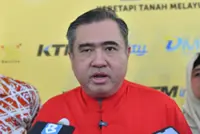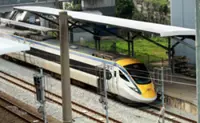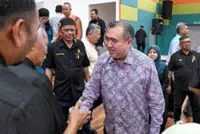PUTRAJAYA: The Malaysia Aviation Decarbonisation Blueprint (MADB) has been launched to accelerate the commitment towards net zero carbon emissions by 2050 for the aviation sector, says Transport Minister Anthony Loke.
MADB, he added, will serve as a reference for aviation stakeholders in Malaysia to achieve net zero carbon emissions by 2050.Loke said that before this, there was no specific green aviation policy in Malaysia to guide the aviation sector in fulfilling the country’s commitment to achieving net zero carbon emissions.
Follow us on our official WhatsApp channel for breaking news alerts and key updates!
Thank you for your report!





